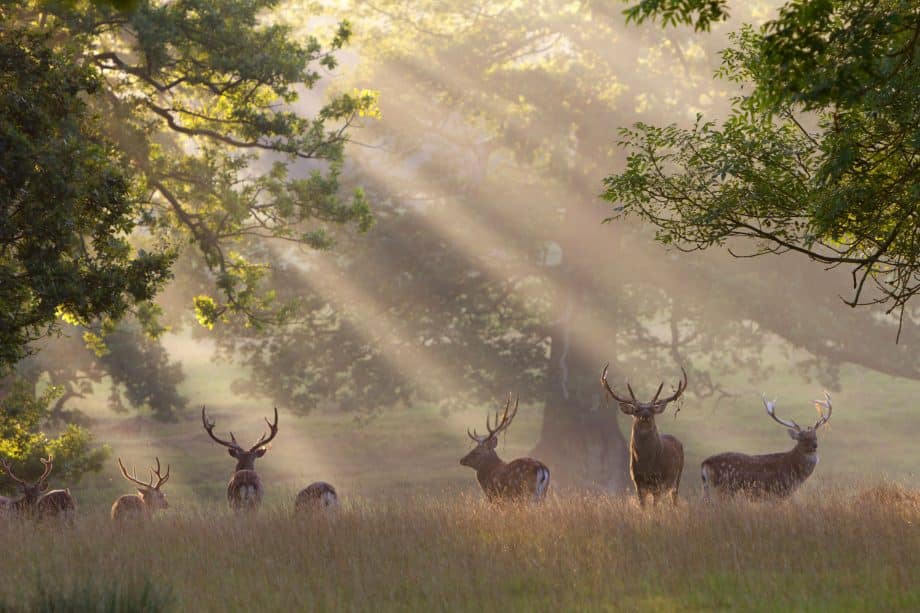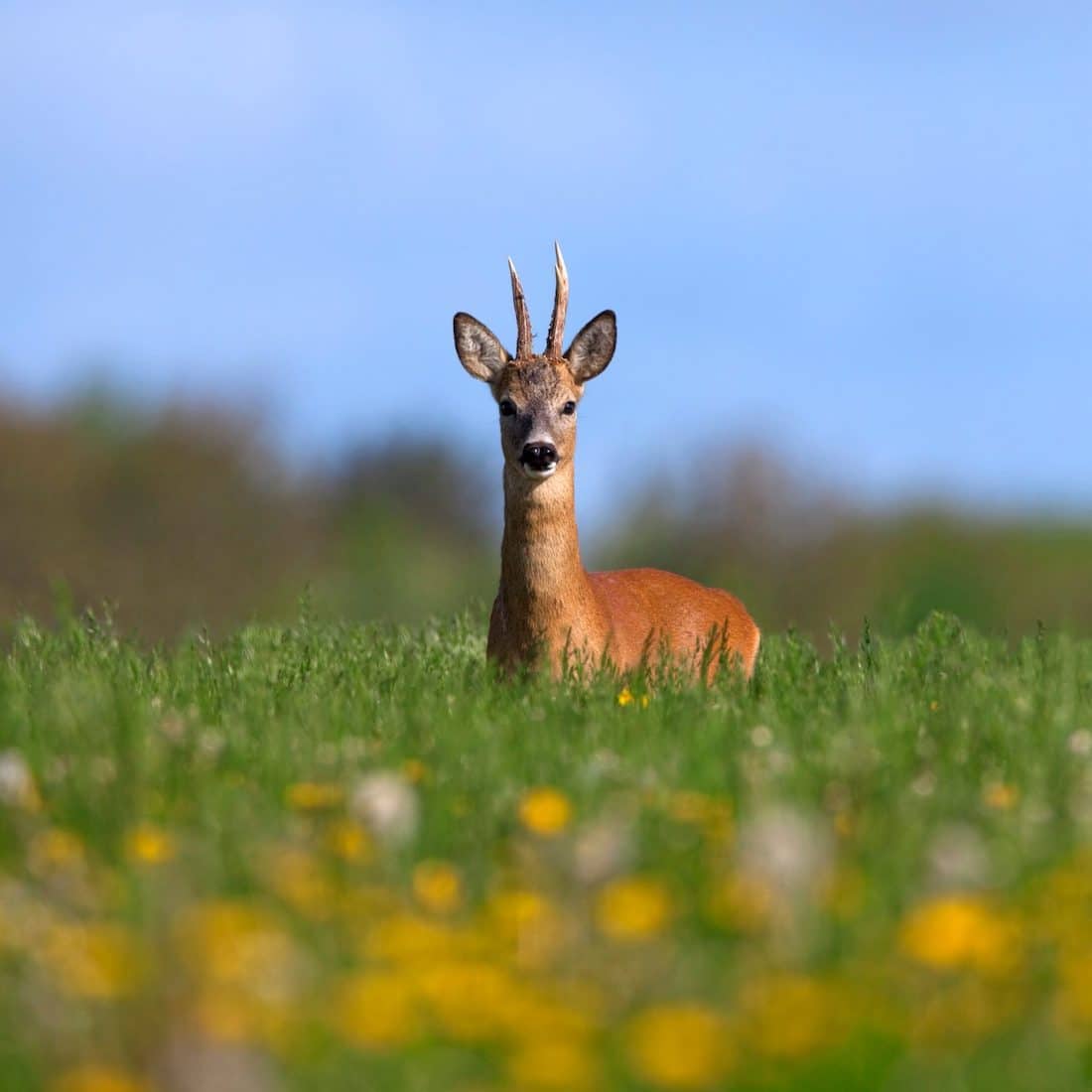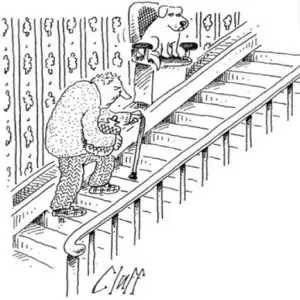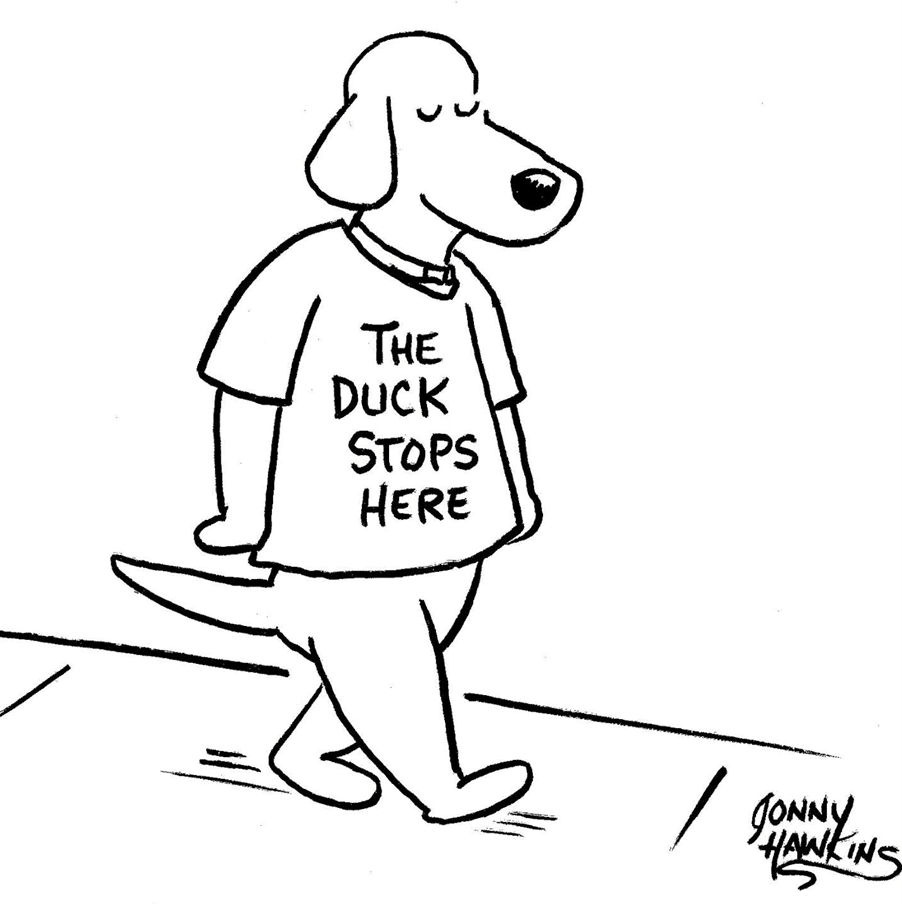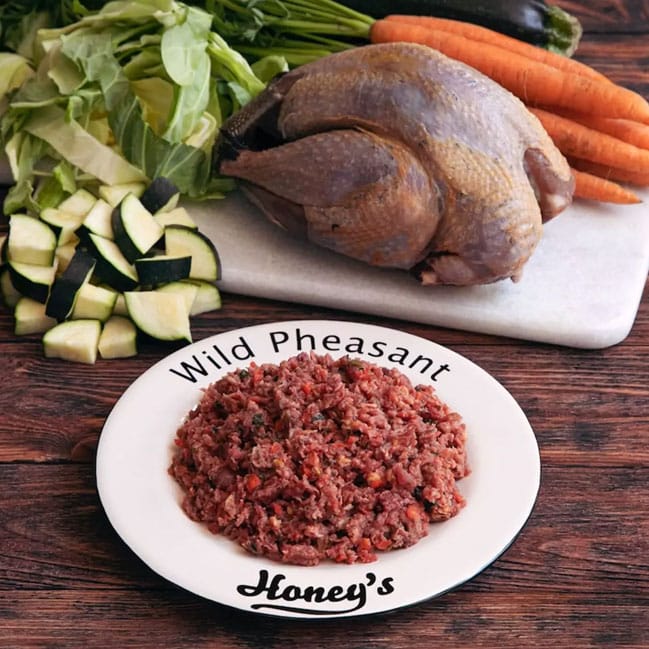Honey’s has joined the British Deer Society (BDS), a charity whose purpose is make a difference for deer in the UK through education, awareness raising, campaigning, advocacy, monitoring, best practice management training, and science and research. We asked Andrea, our contact at the BDS, to explain the benefits of venison and describe her work…
I am sure that I don’t have to explain to any Honey’s customer the benefits of using free range, organic or wild meat. When it comes to wild meat if you haven’t already included wild venison in your dog’s feeding plan then I hope what follows will persuade you of its benefits.
Packed with nutrition
As well as having a distinct and delicious taste, wild venison boasts an outstanding nutritional profile. It is rich in high-quality protein, low in fat, and teems with minerals and vitamins that are essential for dogs – including iron, phosphorus, potassium, zinc, B6, B12, riboflavin, niacin, and thiamine (B1). An abundance of omega-3 and favourable ratio of omega 6/omega 3 further distinguishes wild venison as a top raw food choice for dog well-being.
Supports a varied diet
Variety is a fundamental principle of any raw pet food diet plan as it helps to ensure pets receive the comprehensive spectrum of minerals, nutrients, and vitamins needed for optimal health. With its strong nutritional profile, including wild venison as a regular feature of your dog’s diet is a sure way to help achieve a varied and healthy mix.
A highly ethical option
For anyone whose priority is animal welfare, wild venison is an excellent option. It comes from wild deer living in natural environments free of human intervention. Moreover, there is no live transportation or abattoir involved along with all the stresses they add. Research that has considered stress levels in wild deer indicates that clean-shot deer exhibit negligible stress responses with low levels of stress hormones.
A lower carbon footprint
A Natural Capital (2009) analysis for Scottish Natural Heritage (now NatureScot), indicated that the carbon footprint of wild venison was 38% lower than beef and 49% lower than lamb. This significant difference was largely due to the absence of the highly intensive resource requirements that are needed for farming. Switching at least some (though not all, as variety is still important) of your beef and lamb dog meals for wild venison would therefore make a significant impact on their (and your) total carbon footprint. Wild venison is often readily sourced locally, which helps lower carbon emissions associated with transport.
Supports natural ecosystems
Wild deer can, in places, fall out of balance with the natural habitats they live in. This is mainly thanks to the fact that we’ve eliminated all their natural predators, introduced four non-native species, and created a wider, highly human-influenced ecosystem across the UK that often encourages deer populations to grow.
When deer numbers become excessive, over browsing can prevent natural habitats from regenerating or expanding. What’s more, excessive numbers of deer can also increase competition among themselves for limited resources or increase the likelihood of them coming into conflict with human activities. Such conflict might inadvertently lead to deer being seen as vermin and encourage illegal or poor practices. It even has the potential to reduce proper consideration for their welfare in legislation and policy development.
As a result, for both themselves as well as for our environment, deer require some management to maintain their numbers at sustainable levels and/or prevent further spread of non-native species. Wild venison is a by-product of this very necessary management. Its use helps cover the inevitable costs involved while providing a source of ethically sourced meat with all the many benefits mentioned above.
In the larger scheme of things, then, choosing wild venison for your dog’s bowl helps support the regeneration and expansion of many of our natural habitats while actively supporting deer welfare.
Negligible risk of lead shot
I know that Honey’s has a zero-tolerance policy when it comes to lead shot and that this is a condition the gamekeepers and other producers it buys from must observe. In fact, all but a tiny percentage of deer managers have switched to non-lead bullets.
Worry about consumption of lead traces when feeding their dog wild venison may be a concern for some. In fact, the chances of this happening are negligible because of best practice standards in shooting, the highest hygiene standards, and because most deer managers have already switched to non-lead bullets.
The British Deer Society
The British Deer Society (BDS) is the only charity in the UK dedicated to wild deer. We are a small team of dedicated staff supported by a few thousand passionate members and supporters. Together, we work to ensure that our wild deer are valued and respected, face minimal threats to their welfare and thrive in harmony with their environment. Our core tools are education, training, research, advocacy, and campaigning in all areas related to deer, their welfare, and their management.
If you’d like to help us ensure that wild deer are respected and managed with the utmost responsibility, and that wild venison always remains a highly ethical, sustainable source of food for your dogs (and yourself if you eat meat), then please do consider joining us as a member. Honey’s already have, and we’re excited to have them on board and build our relationship for deer, for pets and the environment.
To learn more about the BDS visit: www.bds.org.uk Andrea can be contacted by email: andrea.barden@bds.org.uk.
Article by Andrea Barden
